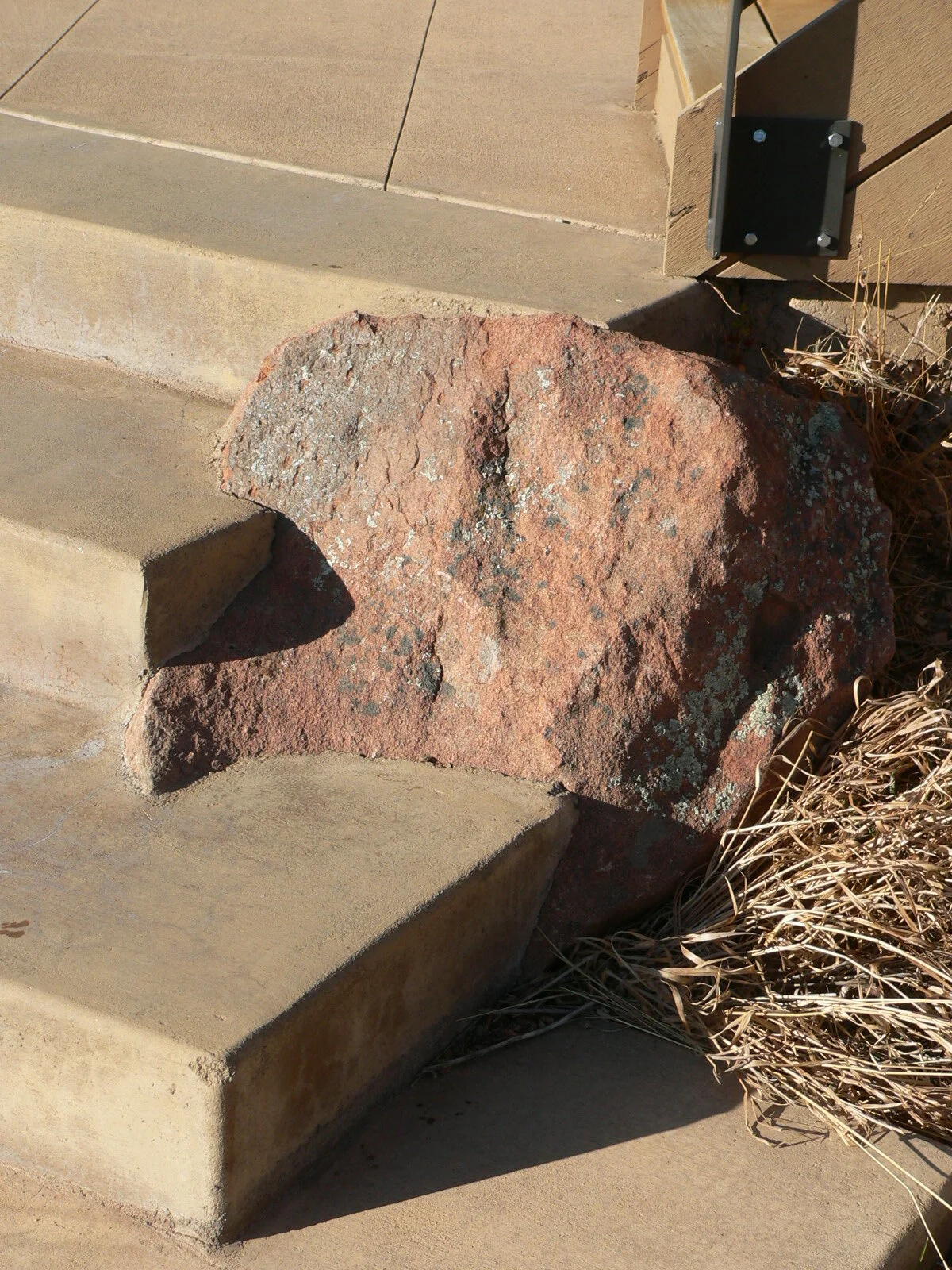Many of my projects are located on rural, steeply sloped sites around Colorado and the Rocky Mountains. There are a number of challenges that come with these sites - steep, rocky landscapes with often huge winter snowfalls and intense, high-altitute solar gain. These are harsh conditions, but my clients have bought these rugged sites because they love them. They love the views, the landscape, the place on the earth that these sites make so starkly real.
mountain house stretched along the slope with terrace on the earth at each end - M. Gerwing Architects
And so it seems odd to me that so many houses built in the mountains are so afraid of the landscape they sit upon.
a house wary of its landscape
I know that foundation issues can warrant making as little and light of a touch to the earth as possible, but frankly I think that much of the point of living in the mountains is to be within that landscape, not just upon it. I’m not talking about a house buried into the earth, but rather one that encourages interaction with the landscape. In a number of projects I have tried to make houses the spill out onto earth, creating terraces and patios that meld with the client’s beloved landscape.
terraces transitioning into the landscape - M. Gerwing Architects
It has often been said that many of the houses of the great French architect LeCorbusier were often a bit removed from their sites, looking more like they are little ships cruising across it rather than sitting with it. These white, pavilion-like houses are scuttling across the earth, nervously looking for a place to dock, European refugees looking for a home.
LeCorbusier’s Villa Savoye
LeCorbusier’s Villa Stein
And there are many mountain houses that hover above their sites in beautiful and graceful ways. I admire these houses, but I don’t want to live in one. My former mountain cabin was no great work of architecture, having been assembled from a log-kit house, but it nestled nicely into the lanscape and provided space below, on, and above the earth. I struggled with, and loved that rugged site, and I am happy to have lived in that landscape, physically engaging with it, not just hovering above it.
house both nestled into the landscape and projecting from it - M. Gerwing Architects
copyright 2020 Mark Gerwing, M. Gerwing Architects, all rights reserved
www.mgerwingarch.com






